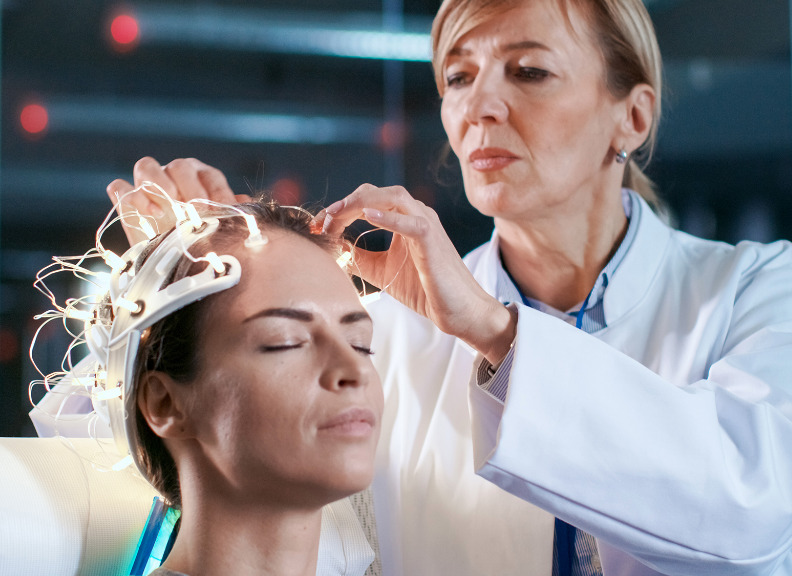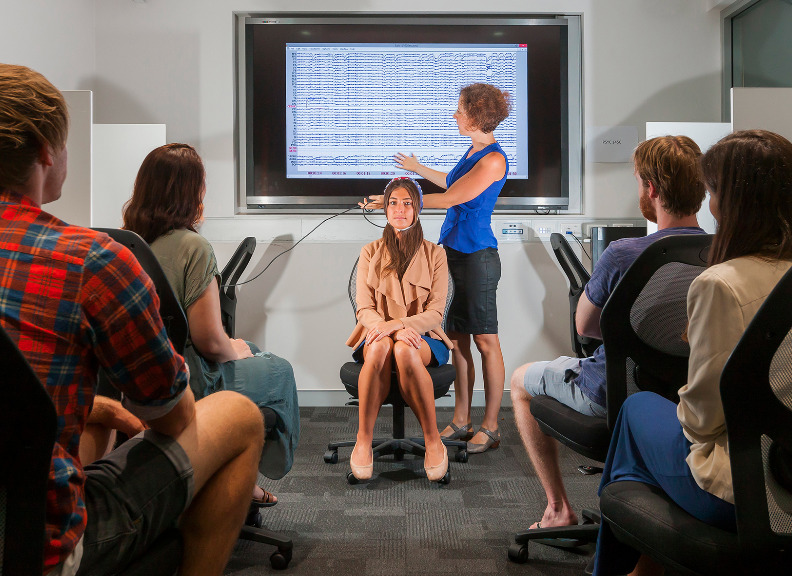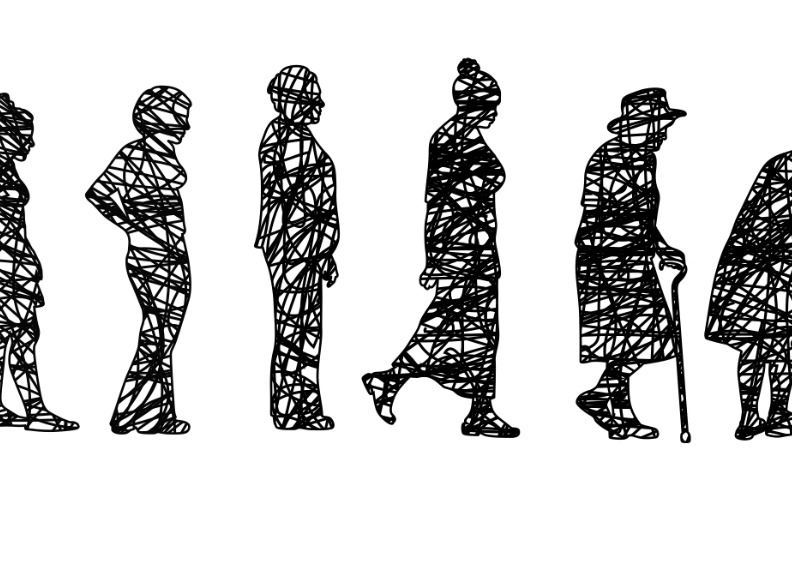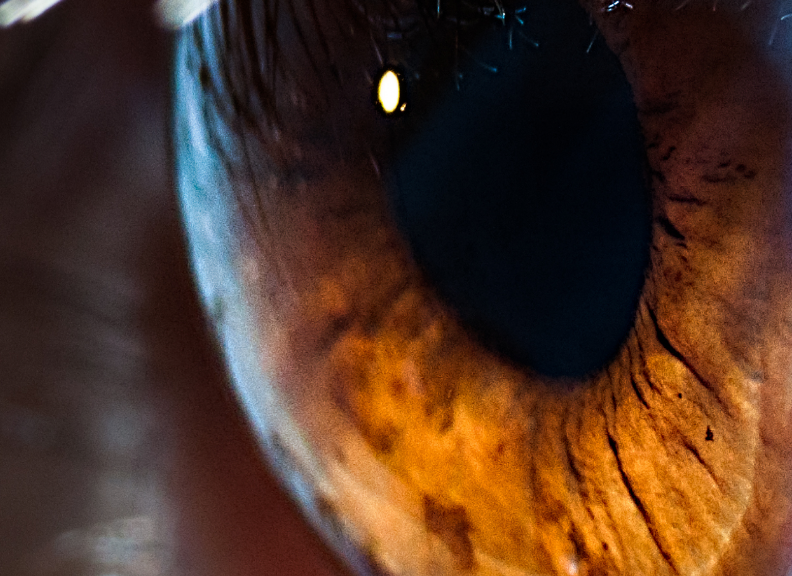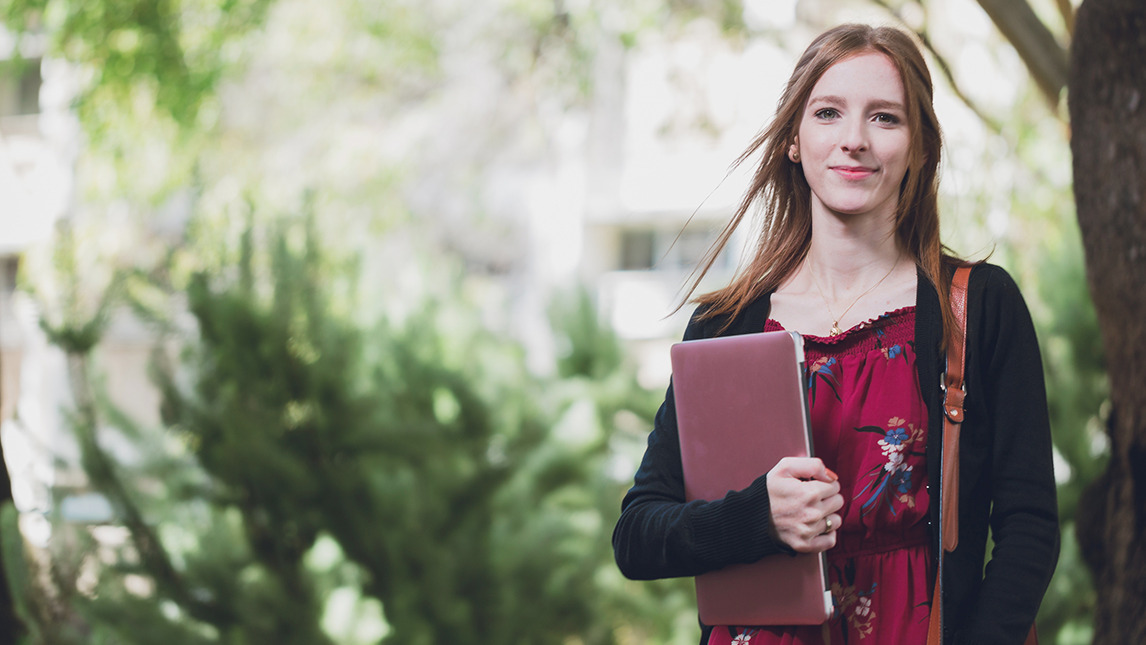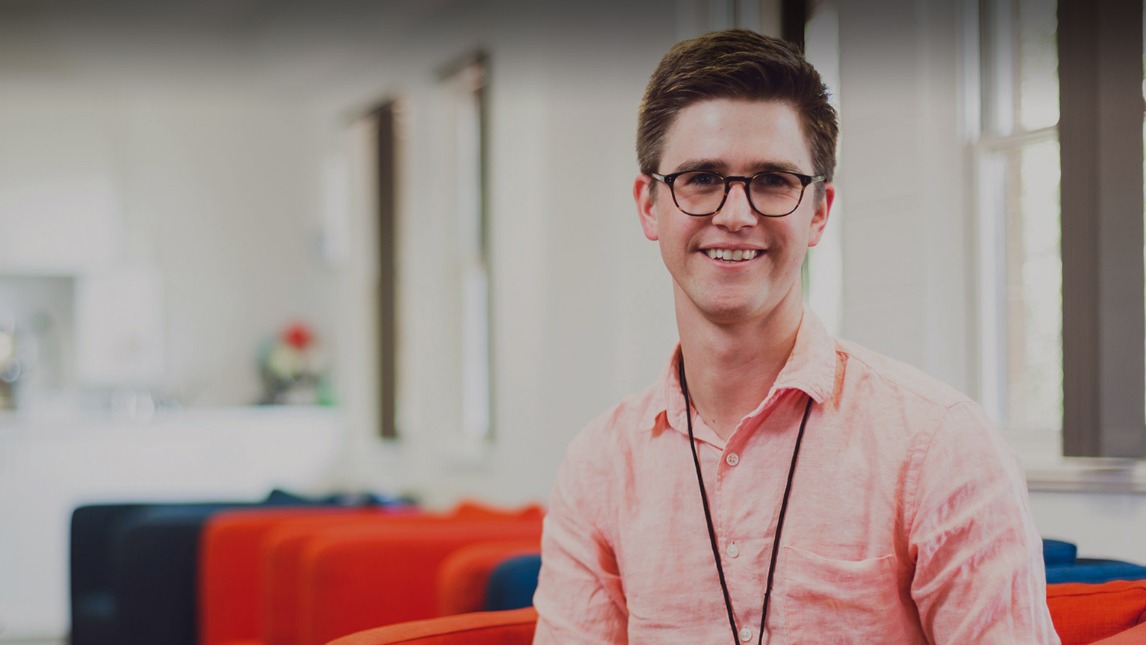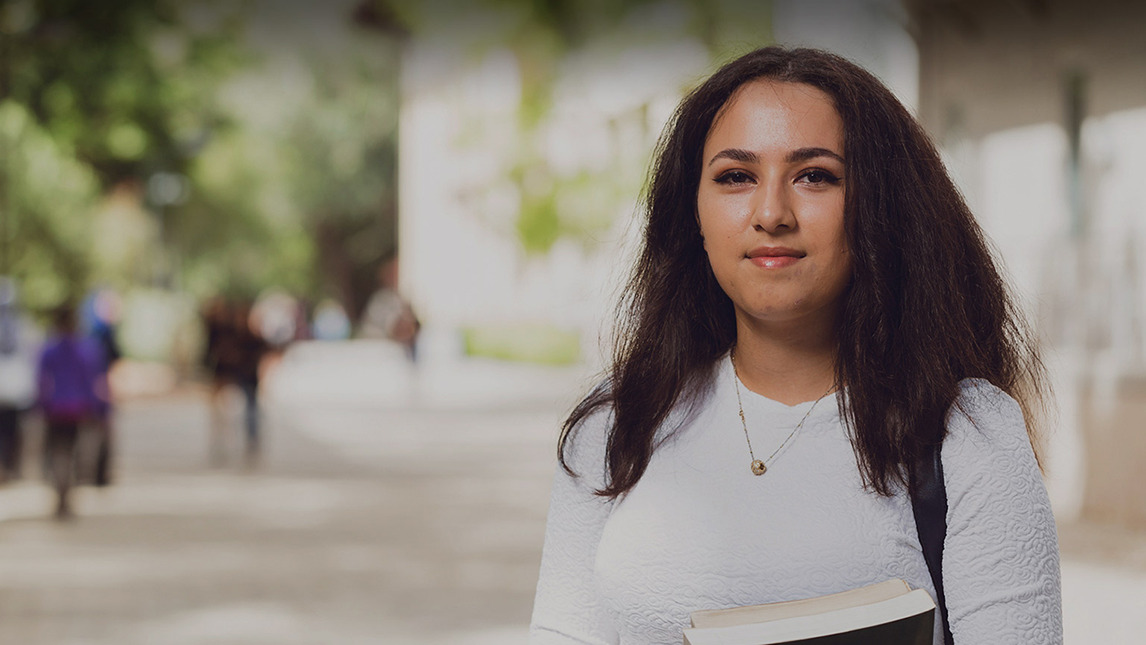School of Psychological Science
Understanding how and why we behave the way we do
Our School centres on the teaching and research of mental processes. We have a strong record of turning out first-rate practitioners and researchers who are widely educated in the theory, practice and research of this discipline. Our students leave as critical thinkers, innovators and future leaders.
The School has received the top ranking (five out of five) in all three Commonwealth Excellence in Research for Australia rankings since 2010, meaning our research is classified as ‘well above world standard’. We’re one of only two schools in Australia to have achieved this.
One of two psychology schools in Australia to have its research rated as ‘well above world standard’ (ERA)
Ranked first in Western Australia for Psychology (QS WUR by Subject 2025)
The School of Psychological Science at The University of Western Australia acknowledges that it is situated on Noongar land, and that Noongar people remain the spiritual and cultural custodians of their land, and continue to practise their values, languages, beliefs and knowledge.
We pay our respects to their Elders both past and present.
Values
Our values are:
- Excellence: We consistently pursue the highest levels of teaching, research, and engagement achievement in the field of psychology, creating the best outcomes possible.
- Integrity: We are honest and ethical in all aspects of our work and practice. We show respect for each other, our students, our collaborators, and our communities — valuing our unique contributions and respecting our differences.
- Innovation: We are constantly and creatively improving and adapting our teaching, research, and engagement practices in the field of psychology.
- Collaboration: We share our collective knowledge, skills, and perspectives to achieve more.
- Equity: We are committed to creating and supporting an inclusive and diverse work and learning environment, and providing everyone equality of opportunity.
Creating an Inclusive and Equitable School of Psychological Science
The School of Psychological Science is committed to creating a supportive, inclusive, and safe environment for all people, and a community where staff, students, and visitors are valued and respected, regardless of gender, race, ethnicity, sexual orientation, disability, religion, or any other aspect of their identity.
All staff and students are expected to abide by the UWA Code of Ethics and Code of Conduct. UWA’s policies for managing interpersonal behaviours, and supporting diversity, equity, and inclusion provide a standard for addressing allegations of inappropriate behaviour, ensuring fairness and equal treatment.
Our Commitment to Aboriginal and Torres Strait Islander Peoples
We recognise and acknowledge the unique and significant contributions of Aboriginal and Torres Strait Islander peoples to our society and our university. We wish to publicly acknowledge the harm done to Aboriginal and Torres Strait Islander people by the psychology profession in Australia and support the Apology to Aboriginal and Torres Strait Islander People from the Australian Psychological Society.
We commit to actively work toward addressing the ongoing impacts of the harms of colonisation and systemic inequities. For example, with the generous guidance and collaboration of the School of Indigenous Studies and AIPEP, we have developed equity pathways, mentorship schemes, and increased the cultural responsivity of our curriculum.
See here for more details about the actions we are taking.
We acknowledge that there is still more to do, and we reiterate our commitment to continuous discussion, reflection, learning, and doing.
Research
Our research is at the forefront of global developments in contemporary psychology. We have particular strength in the following areas:
Centres
The School is currently home to the following collaborative research centres
- Elizabeth Rutherford Memorial Centre for the Advancement of Research on Emotion (CARE)
-
The Centre for the Advancement of Research on Emotion (CARE) commemorates the work of the late Dr Rutherford, a world leader in research into emotion.
The aim of the centre is to advance our understanding of emotion by bringing together research in the areas of cognitive psychology, biological psychology, social psychology, developmental psychology, and clinical psychology.
Key objectives and focus areas of the centre include:
- bringing together world leaders in different research areas to establish new innovations in the understanding of emotion
- investigating patterns of selective information processing (or cognitive biases) that may underpin mental health problems, and examining the causal contribution of these biases to anxiety, worry, and depression
- evaluating recent developments in cognitive bias modification (CBM) techniques to contribute to the emotional well-being of the Australian community
- The Western Australian Centre for Road Safety Research
- The Western Australian Centre for Road Safety Research (WACRSR) has been established to conduct research into new and innovative approaches to road safety in Western Australia.
- The WA Suicide Prevention and Resilience Research Centre SPARRC
- The WA Suicide Prevention and Resilience Research Centre (SPARRC) is designed to act as a central node within UWA to improve mental health research targeted at preventing suicide in Australia and worldwide. The centre brings together a diverse range of researchers and interest groups with a shared goal of improving mental health within WA, including world-renowned academics, psychologists, psychiatrists, allied health professionals and educators.
Courses
Our students leave as critical thinkers, innovators and future leaders.
Resources
- APAC and specific course and unit information regarding exchange
-
Student Exchange and Study Abroad
All undergraduate psychology students at UWA have the opportunity to apply to study overseas, and we welcome overseas students who choose to study with us.
For general information about Student Exchange and where you can choose to study, visit the University's Student Exchange website and/or contact the team at UWA Global Studio.
The information presented below is for UWA students who wish to go on exchange and require approval for psychology units to be taken at a host university.
The Australian Psychology Accreditation Council (APAC) has requirements relating to the content and standard of psychology study awarded by Australian universities, so the UWA School of Psychological Science needs to ensure that the courses you do overseas meet APAC requirements, as well as UWA requirements. This means that psychology units taken overseas must be assessed as equivalent to UWA psychology units in terms of content, assessment mechanisms, and lecture and tutorial/laboratory time. It is important that students consider this information before deciding upon a host university as there may be universities offering psychology units that do not comply with our accreditation requirements.
In selecting units to be taken on exchange, it is essential that you carefully read the information below.
Choosing when to go on exchange
We strongly encourage students to complete a course plan to ensure that they can complete their degree with the units taken on exchange and the units available here at UWA upon their return. In practice, with respect to the psychology units that must be completed, most students will find it more practical to go on exchange in semester two of the second year of their degree.
Choosing your exchange units: Selection Advice
Although the School is unable to provide advice on specific units you should undertake, please refer to the tips and hints below to help guide you in choosing your overseas units.
If you are seeking 'specified credit' (i.e. you wish to take an overseas unit in lieu of a specified unit within Psychology at UWA) you should carefully read the unit information for the UWA Psychology unit in the University Handbook, and select an overseas unit that you feel closely matches the UWA unit. If the content of the overseas unit is not sufficiently similar to the content of the specified UWA Psychology unit it is very unlikely that your application will be approved.
Please note it is your Allocated Student Advising Office that awards the credit and makes the final decision about what and how much credit you receive from your overseas study.
Your units must be a match for UWA units: Assessing the equivalency of Psychology units
In order to maintain compliance with Psychology Accreditation bodies, it is essential that any psychology units you wish to study overseas as part of your UWA degree are deemed equivalent to Psychology units offered here at UWA in terms of:
- Content
- Level (e.g. Level 2 unit)
- Delivery mode (appropriate number of lectures/seminars and labs/tutorials)
- Assessment (appropriate mix of written assessment and exams)
To ensure that your Allocated Advising Student Office has all the information required for assessment we require you provide a detailed unit outline for each of the units under assessment. The unit outline must contain the following information:
- The level of the unit (e.g. Level 2 unit)
- The worth of the unit - How many units/credit points per semester do students study in a standard full-time enrolment at your intended exchange university? (e.g. 10 credit points, with a year of full-time study being worth 80 credit points at the overseas institution)
- Prerequisites for the unit
- Content information for each unit, including delivery mode information (e.g. 26 hours of lectures; eight hours of labs/tutorials)
- Detailed assessment information including the weighting of each piece of assessment (e.g. 2000 word essay 30%; Oral presentation 20%; 2-hour exam 50%)
- Marking scale used for the unit. Students must also agree to bring back a transcript for the marks (e.g. 69%) for each of the units taken on exchange as a grade only (e.g. distinction, credit, pass, fail) is not sufficient.
I could study overseas that I won't get credit for?
Yes, you should avoid psychology units that are very similar to units you will have already completed at UWA, as you may not be able to get credit for these. Similarly, if there is a unit you are keen to complete at UWA when you get back, don't complete a very similar course on exchange.
Our staff
Our staff are working at the cutting edge of research and practice. They bring their diverse expertise and their passion for psychological science into the classroom to provide world-class educational experiences for our students, and into the community through a wide range of community engagement and impact activities.
Community program
Our School has a strong community outreach program.
- We offer psychological assessment and treatments through the School’s Robin Winkler Clinic.
- We invite members of the community to participate in our research and run many studies that require voluntary, community assistance.
- We maintain collaborative links with a wide range of non-academic partners across government, industry and the NGO sectors
- We welcome enquiries by the media.
- We run a series of community events including the annual Robin Winkler Lecture and the annual Psychology Film Night.

Community Research Participation Pool
We run many research studies that require volunteer assistance. These studies are quite diverse, interesting to take part in and serve to advance understanding of the ways we think, feel and behave across a variety of contexts. This pool is made up of those willing to consider taking part in some of this work.
Members of the pool are informed of studies and can freely choose whether or not to take part. In most cases, participation involves one visit to UWA, lasting about an hour, though sometimes a study may require more than one visit, or can be completed online without coming to campus. We provide a small token of appreciation to offset cost and inconvenience.
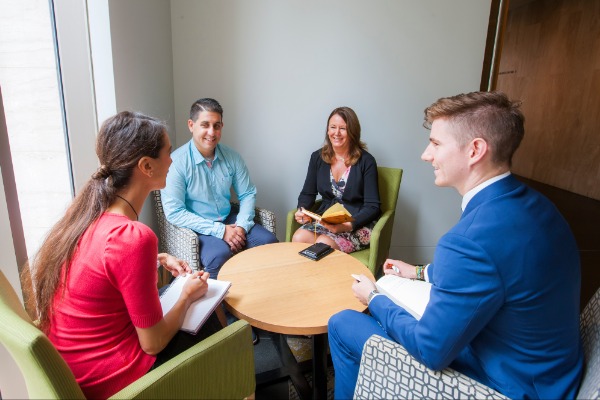
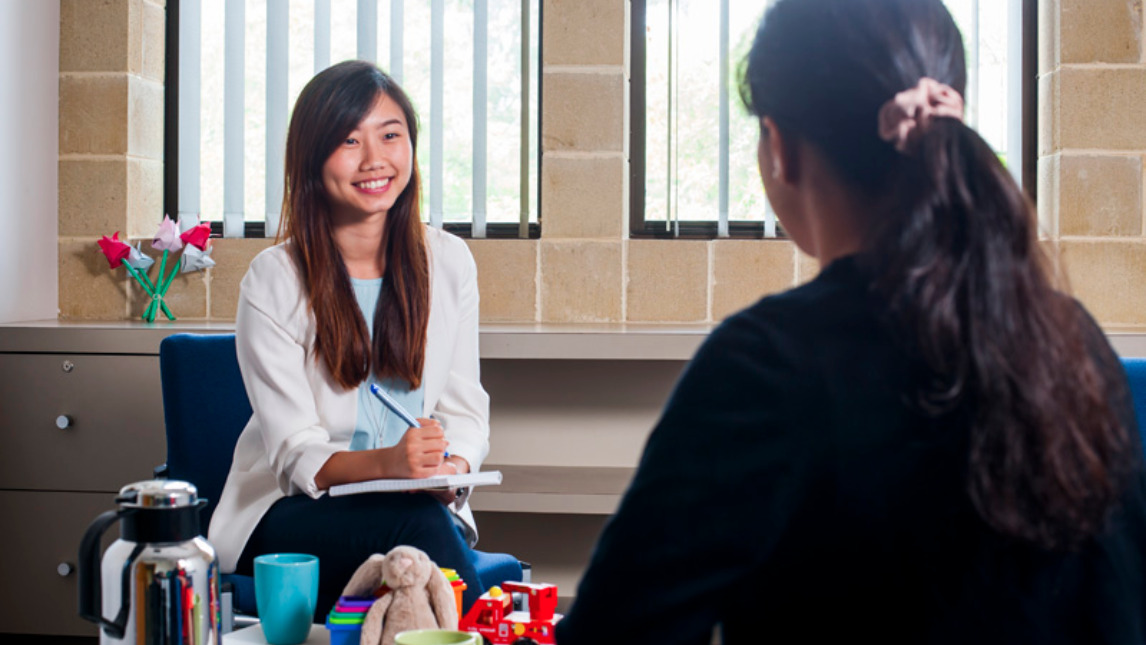
Robin Winkler Clinic
The Robin Winkler Clinic is a clinical psychology unit linked to the School of Psychological Science. Under the expert supervision of experienced clinical psychologists, provisionally registered postgraduate clinical psychology trainees carry out individual and group therapy treatment.
News
-

Lonely construction workers at highest risk of suicide
Tue, 6 Jan 2026
-

Animals may feel like us, but the way we think is different
Thu, 4 Dec 2025
-

UWA researchers at the top of their fields
Wed, 19 Nov 2025

